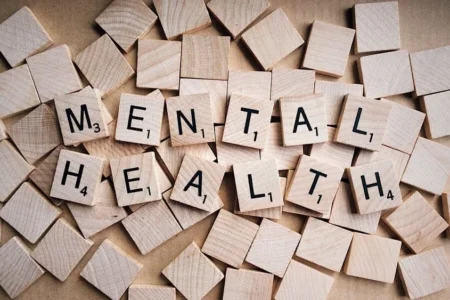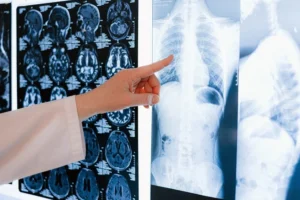Unlocking the Power of Mind-Body Wellness: How Nutrition Can Impact Your Mental Health
- Updated on: Jan 3, 2025
- 2 min Read
- Published on Jan 3, 2025

The connection between physical and mental health cannot be denied, yet it is often overlooked. The mind-body connection plays a crucial role in overall wellness. Your brain is the command center of your body, and it relies on proper nourishment to function optimally. What you eat affects not just your physical body but also your mental processes. Nutrient deficiencies, particularly in critical vitamins and minerals, can negatively impact mental balance and lead to challenges such as depression, anxiety, and stress.

Magnesium and Mental Health
Magnesium is often referred to as a calming mineral and is essential for more than 300 biochemical reactions in the body. These biochemical processes directly affect mental health. Unfortunately, magnesium deficiency is extremely common; studies suggest that nearly 50% of people in Western countries consume less than the recommended daily intake. A magnesium deficiency can lead to increased anxiety, as magnesium helps regulate cortisol levels. It may also result in symptoms of depression and sleep disturbances, as magnesium supports relaxation and combats fatigue. Fatigue is another common sign of deficiency, as magnesium plays a role in energy production and cognitive clarity.
Improving Mental Health Through Magnesium
Addressing magnesium deficiency can improve mental health. Incorporating magnesium-rich foods into your diet can support the wellness of both your body and mind. Top food sources of magnesium include:
– Leafy greens like kale and spinach
– Whole grains such as quinoa and brown rice
– Legumes like black beans and chickpeas
– Dark chocolate with high cocoa content
– Nuts and seeds like cashews, almonds, and pumpkin seeds
If your dietary intake is insufficient, supplements like magnesium glycinate can provide an effective and bioavailable solution. This form of magnesium is gentle on the stomach and is particularly beneficial for those looking to reduce anxiety and improve sleep quality.
The Bigger Picture: Holistic Nutrition for Mental Health
Nutrition is only one piece of the larger puzzle of mental health. A balanced diet rich in vitamin B, antioxidants, and Omega-3 fatty acids can also enhance mental well-being and support brain function. Additionally, staying hydrated, practicing mindfulness, and exercising regularly can amplify the positive effects of good nutrition.
Why Physical and Mental Health Go Hand-in-Hand
Physical health and mental health are very connected. For example, fatigue or chronic pain can negatively impact mood, which leads to feelings of anxiety, frustration, or depression. As well, mental health issues can manifest as physical symptoms, such as muscle tension, headaches, or digestive issues. By making sure you have the right magnesium intake, you can address both mental and physical health simultaneously, which helps to create a sense of balance and overall wellness.
Conclusion
Unlocking the power of wellness in both body and mind starts with understanding the impact nutrition can have on mental health as well as physical health. Magnesium is a vital nutrient that supports cognitive function, emotional resilience, and effective stress management. By addressing magnesium deficiency through diet or supplements, you can take important steps towards better mental health and overall well-being.












